“People were vaccinated since childhood in the Soviet Union and nobody asked”: should we impose vaccination against COVID-19?
The Constitution has become the main argument for both the supporters and opponents of total vaccination of Russian citizens
As Realnoe Vremya found out, some lawmakers from Tatarstan openly doubt the reasonableness of the recent proposal of the Federation Council to ban the admission of unvaccinated children to schools and kindergartens and expand the list of mandatory vaccinations. Together with coronavirus panic, this can only cause rejection, deputies believe. Irina Volynets' petition against the amendments to the legislation has already gone up to more than 100,000 signatures. Meanwhile, in Russia, as well as around the world, there is a growing public discussion about the need for universal vaccination of the population against COVID-19 in the next two years. The topic is widely discussed by the Russian authorities at various levels, but there is no clear answer yet, just like the vaccine. We interviewed politicians, lawyers, businessmen and scientists to find out whether the initiative of the Federation Council will be able to become a legal basis for immunization against COVID-19 in the future and how the Tatarstan public assesses the possibility of universal vaccination.
“The main point is not to change the federal law today, as suggested in the Federation Council”
State Duma deputies from Tatarstan, interviewed by Realnoe Vremya, reacted warily to the proposal of the Federation Council, as well as to the idea of universal vaccination against the new coronavirus in Russia, calling statements about this clearly premature. If the German government already in May officially announced the rejection of a total vaccination campaign after the appearance of the vaccine against Covid-19, the Russian authorities still prefer to solve problems as they come.
In accordance with the current Federal law No. 157 'On immunoprophylaxis' in the Russian Federation today, vaccination is voluntary.
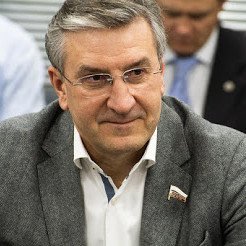
“Today the vaccination is voluntary. And I believe that it should remain voluntary," our interlocutor emphasizes. “We should not accept any restrictions related to the refusal of people. But at the same time, we must strengthen our propaganda work and answer all citizens' questions. Make this work as transparent as possible so that people can make a conscious decision about the need for vaccination.
For most people, it is already obvious that if you have antibodies, you will not get this infection. But at the same time, many people do not trust the quality of information about vaccination and vaccines, do not trust or most often do not even know about the quality of the vaccine produced. Some people also point to cases when there is a disability after the administration of vaccine, the deputy explains the motives of people.
“In my opinion, the main point is not to change the federal law today, as proposed in the Federation Council, and not to make restrictions [on the basis of] — vaccinated/unvaccinated. But at the same time, we are very active in answering the questions raised by citizens and making this information as transparent and accessible as possible for everyone. I believe that today such work and this situation will be sufficient. I think that we will only run into negativity if the legislation is changed and vaccination becomes mandatory," Ayrat Farrakhov concluded.
The question is ambiguous in all respects, Deputy of the State Duma of the seventh convocation Irek Zinnurov agrees with his colleague. On the one hand, many vaccinations according to the national calendar have become commonplace and the norm of life for an absolute part of the population. And now, when not only Russia, but the whole world is gripped by the epidemic, it needs to be somehow resisted. But in the situation with COVID-19, the first thing that scares and repels people from vaccines is uncertainty — the distrust of information about the quality of vaccines and their effectiveness, the MP states.

“I think that time will pass and this vaccination will become the same norm of life for people as once vaccination against smallpox, but here, once again, time will be the deciding factor. There are also questions about the law with mandatory vaccination, since mandatory vaccination means restrictions for unvaccinated people and children in particular.
“Mandatory vaccination comes into conflict with the different articles of the Constitution” — or not?
To clarify the issue of the availability of a legal framework, and therefore the possibility of universal immunization in Russia, in particular against COVID-19, Realnoe Vremya turned to Tatarstan lawyers, legal and political experts. Most of the experts who agreed to discuss the topic still talk about the legal conflict of a possible total vaccination campaign and even a new proposal from the Federation Council with more significant legal acts. But there are also supporters of the idea who prove that there is no other way out for civilized countries. It is also interesting that both sides justify their position precisely by articles of the Constitution.
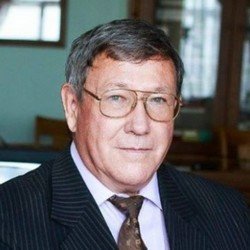
From the point of view of Russian legislation, this is quite real, the legal expert assured. Not to be unfounded, he quoted the 3rd part of article 55 of the Constitution: “Human and civil rights and freedoms may be restricted by federal law only to the extent necessary to protect the foundations of the constitutional order, morals, health, rights and legitimate interests of other persons, and to ensure the defense of the country and the security of the state.”
“I emphasize, health! If we are talking about the health of the nation, this is necessary. There are actually three options. The first is to ignore everything, and if there is a [new] outbreak, the pandemic will wipe out half the country if we do nothing. The second option is isolation, which has already been tested now. This is both an economic and social impasse. How long can people sit in isolation? The third option is either to have a proven drug, or vaccination," the expert concluded.https://admin.realnoevremya.com/articles/save?id=4553#
Ildar Khabibullin, a Kazan lawyer and co-owner of A2K law office, has a different opinion. In the conversation with Realnoe Vremya, he recalled that the law 'On immunoprophylaxis' in the current version does not allow anyone to be forcibly vaccinated, but it allows you to create certain restrictions for people who have not been vaccinated, in certain periods of time. For example, if there is a risk of spreading the virus, during epidemics, it allows you to limit the attendance of children in kindergartens.
“Mandatory vaccination comes into conflict with the different articles of the Constitution. Restricting access to educational organisations for children without vaccinations is a violation of article 43, which guarantees the right to education. In general, the right to have certain beliefs, article 28 of the Constitution. It says not only about the right to religion but also the right to other beliefs, so if I am convinced that vaccination contradicts my beliefs, I should have the right to choose," explains Khabibullin. “If we are talking about some restrictions and vaccination of children, it is the right of parents to raise their children [article 63 of the Family code of the Russian Federation].
“Personally, my opinion is that if someone wants to be vaccinated — for God's sake, please. But if I was not convinced that vaccination is necessary and it will have any results, then I should have the right to choose, and you can not deprive people of this right," the lawyer added.
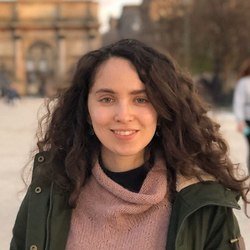
Arguments about mandatory vaccination against any infection should be considered through the prism of constitutional human rights, the expert insists, since vaccination is a medical intervention that, according to Russian law, can be carried out on a voluntary basis or as a result of a significant change in legislation.
“First, it is the right to freedom and personal integrity. Second, it is the human right to respect for his dignity, enshrined in article 21 of the Constitution of the Russian Federation as 'personal dignity', which implies respect for the person and his decisions, the inability to treat him as an object of regulation. Besides, for some groups of citizens (and quite numerous), vaccination is incompatible with the implementation of the right to freedom of conscience and religion, guaranteed by article 28," argues Karina Gorbacheva. “So, if we want to remain a civilized society that observes its own laws,we should stop talking about mandatory vaccination, any vaccination.
Speaking about the possibility of introducing mandatory vaccination against coronavirus infection and its need, according to the expert, the first issue to raise is the safety of the proposed vaccine. The political expert reminded that there are widely known cases of complications from vaccines, and the responsibility for them is borne by citizens themselves, not the state or pharmaceutical companies. Therefore, it would be more correct to follow the Hippocratic rule — 'do no harm'.
“As for the possibility of changing the legislation on vaccination itself (including the Constitution), any attempt to legalize mandatory vaccination will lead to the reduction or even cancellation of the generally recognized rights of citizens. This is unacceptable," the expert concludes.
“Maybe we should create schools and classes for unvaccinated children. For this, we pay taxes to the state”
Pavel Shmakov, the director of the Kazan boarding school for intellectually engaged children Solntse, voiced a non-standard proposal as an alternative to the proposal of the Federation Council in a conversation with Realnoe Vremya. Speaking about the possible impact of innovations on schools in the future, he stressed that the idea of parliamentarians is clearly negative and sees another way to solve the problem of vaccination in educational institutions.
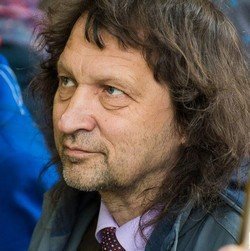
At the same time, vaccination, according to our interlocutor, should not only be desirable, but also 'propagandised'. Here, it is extremely important to separate the concepts of decrees and recommendations. The latter is too often passed off as mandatory decisions, which often leads to ambiguity.
“There is a great example about the coronavirus — these terrible April-May have literally just passed. Children studied at home, many of them at computers. At the time when the coronavirus was not yet present, Rospotrebnadzor said that first-graders should not sit at the computer for more than an hour. In the era of 'remote education' in most schools, children were sitting for 4-5 lessons at the computer. And Rospotrebnadzor was silent because it believed that it should be silent. And it's terrible. Now they again say that you can not sit for a long time at the computer. But again — there are recommendations, there are mandatory things," Shmakov illustrated his position.
The question of introducing mandatory vaccination, including against the new coronavirus infection, according to the teacher, from the “same kind” of differentiation of obligations and recommendations.
There was a situation in Sweden and Belarus, and there was a situation in Germany or the United States, for example. In the US, a huge number of people died, in Germany — very few people died, and in Sweden — nothing was forbidden at all. Each path had its advantages and disadvantages. The pros and cons of each idea should be clearly outlined. You can never do what you did in 1937 — destroy people, put them in prison for 20 years for stealing three spikelets. Here's the same — they want to keep children out of schools, because their parents are against vaccination. The state is obliged to take its own measures, and parents are obliged to protect the health of children, concluded the source of Realnoe Vremya.
“We must fight the disease so that the situation does not repeat itself. We are still making losses”
Entrepreneurs surveyed by Realnoe Vremya assess the prospects of vaccination more based on personal considerations for or against, but some representatives of the business community expressed the opinion that 'Covid immunization' in the future may save the economy from such falls and “paralysis” that could be observed in recent months.
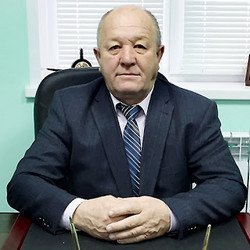
“As a chief, I felt the epidemic well. Hundreds of people pass through my drivers' salons every day. There are always dissatisfied people, everyone has their own vision. But, as world experience shows, we must fight the disease so that a situation like today's does not repeat itself. We still haven't put all the routes on the line, the load has fallen, people are out of work in other industries, and we are incurring losses. Vaccinations could help prevent all this from happening in future generations.
“In the Soviet Union, since childhood, they were accustomed to vaccines and did not ask whether parents wanted or not to do it, they did it to everyone. And no one died from them," the entrepreneur added.